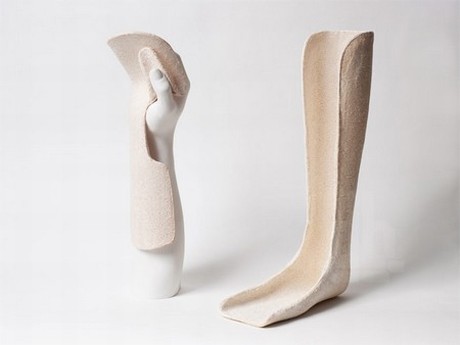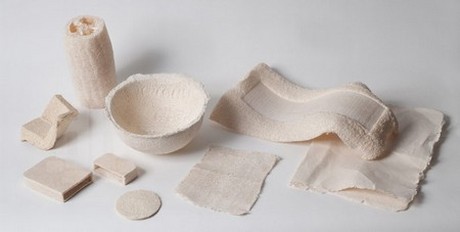Mauricio Affonso, a Brazilian designer and Londoner by adoption, produced a series of innovative objects from this tropical plant. He learned about its versatility while working with the Bonfim community in Brazil.

Thanks to Brazilian craftsmen and experts, the designer discovered the origins of luffas and their traditional use. Luffas are used mostly as sponges, for personal hygiene and to clean. They are highly absorbing and have antimicrobial properties.
Affonso was deeply impressed by their characteristics: the fibres form a complex cellulose net that makes the material very resistant and light at the same time. It is therefore ideal for casts, filters, packaging and insulating materials.

Luffa casts, which are called Luffa Split, are the main innovation. They are cheap to produce and luffa fibres are processed when they are humid and pressed in special moulds. It is a low-cost solution for those areas where it is difficult or impossible to access health facilities. Luffa casts are light, strong, breathable and biodegradable. They would be more efficient than synthetic casts.
Other projects show how luffas could be used to absorb the toxic substances used during dyeing in denim processing. Affonso's objective is to spread the use of luffas in different sectors in order to promote sustainable practices from a social and environmental point of view.





